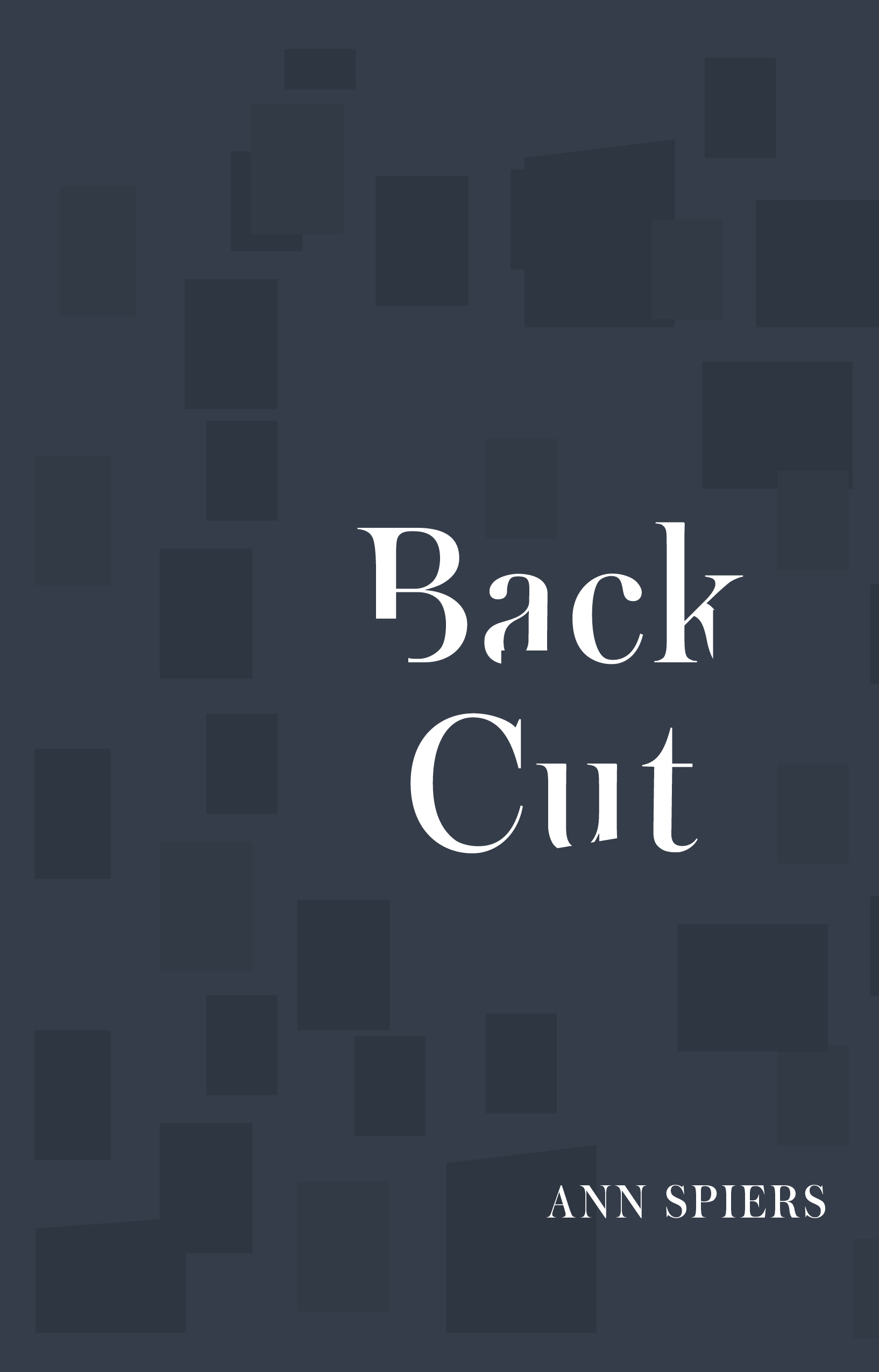Nominated for Pacific Northwest Booksellers Award 2022
Wife: I don’t like him finding value in a cracked cup.
Husband: She comes out on the porch/raises my rifle/for one shot at the cursed crow.
Black Heron Press, paperback, $16
ISBN 978-1-936364-38-1
Order from Black Heron (www.blackheronpress.com, single books) on-line or through your local bookshop: Arundel, Elliott Bay, Vashon Book Shop, Third Place Books, Harbor Books and Polson (Hoquiam WA), Birdhouse Books (Vancouver WA), BookTree (Kirkland), Open Books, and others. For larger orders, use Independent Publishers Group (ipgbook.com)
In Back Cut’s monologues, wife and husband tell of eking out a living on what is left of the natural resources after the heyday of logging and the harvesting of razor clams. He is a veteran and now battles addiction. She has withdrawn from family and community. To the husband and wife,each sensual detail of their lives is a prick or a joy.
Listen to Ann read VoV KVSH 101.9FM from Back Cut with Margaret Roncone, Sandra Noel and others. http://VoiceOfVashon20230214.mp3
Kudos for Back Cut
…Yet love is richly cast in each line of these monologues by husband and wife, uniquely set against the coast of the Pacific Northwest in the aftermath of World War II.
—Sharon Hashimoto, More American (Off the Grid)
These poems honor place and the people bound to it. They marry sea and forest, hunger and plenty. The wife says what the poems say, “Yes, I am here I am here.” Dress for the weather. This collection is much more than a day at the beach.—Kevin Miller, Vanish (Wandering Aengus)
Spiers describes the collection as a love story, and love story it is, not just between husband and wife, but between humans and the land that sustains them. Kudos to Spiers, who renders it all so vividly we can taste each briny clam, claim our complex Northwest history.
—Holly J. Hughes, Hold Fast (Empty Bowl)
From goodreads Link Here: Back Cut by Ann Spiers | Goodreads
The poems in Back Cut are set in the Pacific Northwest, particularly Washington State. The time is immediately after WWII, when the heyday of logging and harvesting razor clams has passed and people eke out a living on what is left of these natural resources. Back Cut is a love story. Through alternating monologues, husband and wife reveal themselves. He is a veteran who fought in Europe and now battles addiction. She has largely withdrawn from family and community. The narrative contrasts the romantic view of the fabled rain forest and mythic ocean with the reality of being human in the Northwest grays and rains. Solitary humans have little power in the face of dominant nature. In these poems husband and wife are dedicated to an abiding love lived out on a fretwork of personal disquiet. The couple’s inner thoughts and feelings and the physical environment are detailed with both woe and humor. The poems describe living in a cabin, lighting a wood stove, jarring clams, digging potatoes, helping neighbors, cutting floral greens, sitting in a tavern, and touching each other. To the husband and wife, each sensual detail can be a prick or a joy. —Bill Yake
Back Cut Review, Jesse Edward Johnson, Vashon Beachcomber
In her latest volume, entitled Back Cut, Ann Spiers probes the depths and rhythms of a time-worn marriage.
In the introduction to the book, Spiers–Vashon’s inaugural Poet Laureate–cuts straight to the point: “This is a love story.” But it’s not just any love story. It’s a story of love as an exercise in endurance and fortitude. It’s a book about how long love gets embedded in you, like a clam in sand.
The book is structured as a dialogue, alternating between the speaking voices of a wife and husband who live at the edge of the world—the Washington coast in the years after World War Two. He is haunted by the war; she is filled with unfulfilled desire. They are like twin firs whose trunks have been conjoined at the base: inextricably connected, slowly diverging. We bear witness to the late years of their lives as they confront disasters both natural and personal, and as their lives unfold in all their marvelous banality: digging for clams, buttoning jackets, harvesting potatoes, making banana bread, walking the beach, and walking it again. There is a kind of magic in these everyday rituals, a groundedness.
As with much of Spiers’s considerable body of work, the physical setting of Back Cut is a character unto itself. The imagery is exquisitely vivid throughout: pucks of beach and fresh scat purple / with fruit and old clams gaping with stink. These phrases and many others like them transport us to the harsh majesty of the Washington coast. As you read this book, you feel the wind and hear the waves and smell the damp sand. It is a master class in sensory immersion.
Though the backbone of the book is, ostensibly, the love story at its center, it is Spiers’s supple, crisp verse that holds the volume together. Her finely tuned ear makes Back Cut truly a treat to read. These lines from “Wife–Methuselah’s Beard,” the opening poem of the book, give a sense of what that sounds like:
we roll through woods
hung with Methuselah’s Beard
a lichen
so proficient
it eats the air
I say I don’t mind being here
the smell of cedar
holding me
Listen to the way that cedar echoes here echoes air; hear lichen in proficient, and woods in Beard. This is what the graduate students call “mimetic rhyme”—that is, rhyme that mimes the sense it is trying to convey. Halting, tentative, never quite fully resolved. Throughout the volume, Spiers rewards our attention in this way. (Keep your eye out for the one blatantly perfect rhyme!)
I read this book over the course of three ferry rides. It was a welcome respite from the usual scrolling and swiping. So consider putting down your phone for a while and picking up this book. You’ll be glad you did.
